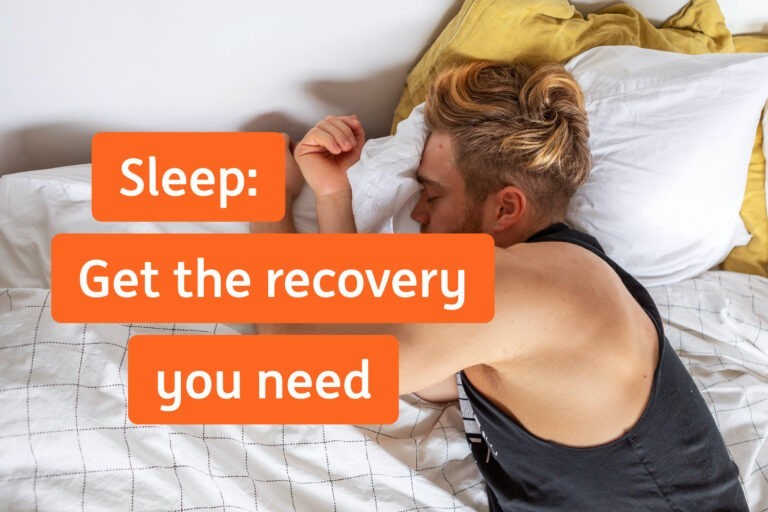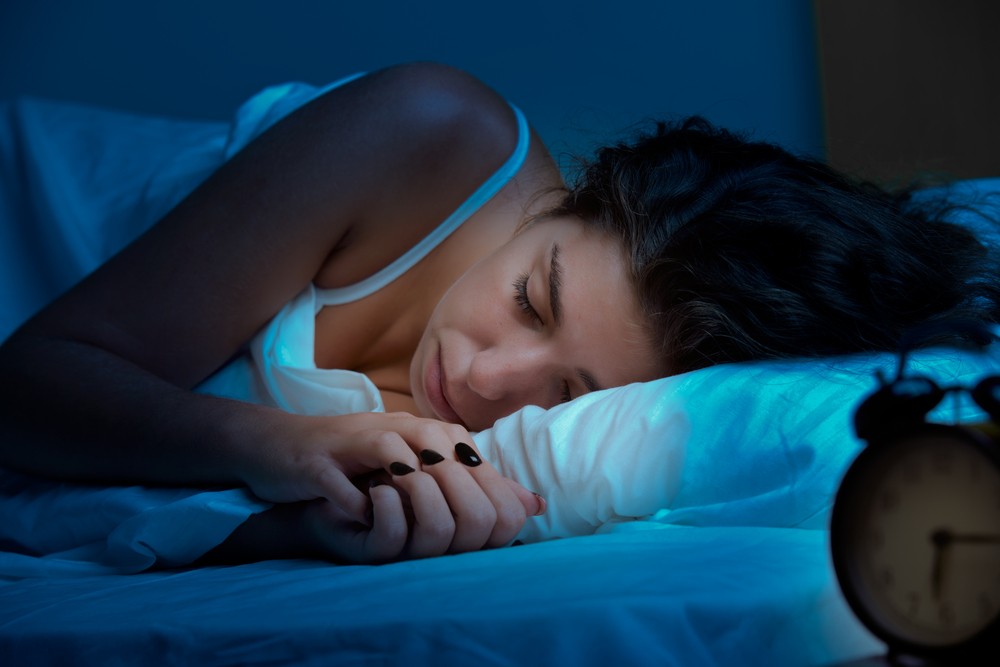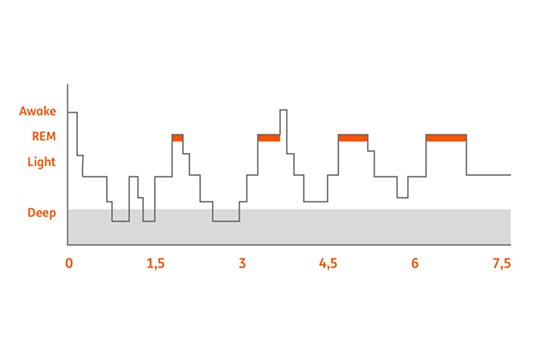Looking to enhance your overall wellbeing? Focus on in the single habit that you spent the most time on throughout your life; Sleep.
Why Sleep?
Sleep recharges your batteries like nothing else. It repairs damage to your body, stores your memories, helps you put things in perspective, and cleans up your brain. After a good night’s sleep you wake up with clarity, a better functioning brain, and a healthier body. This is exactly why sleeping better is a vital part of reaching your goals.
When you get enough high-quality sleep, you treat yourself to all the advantages below:
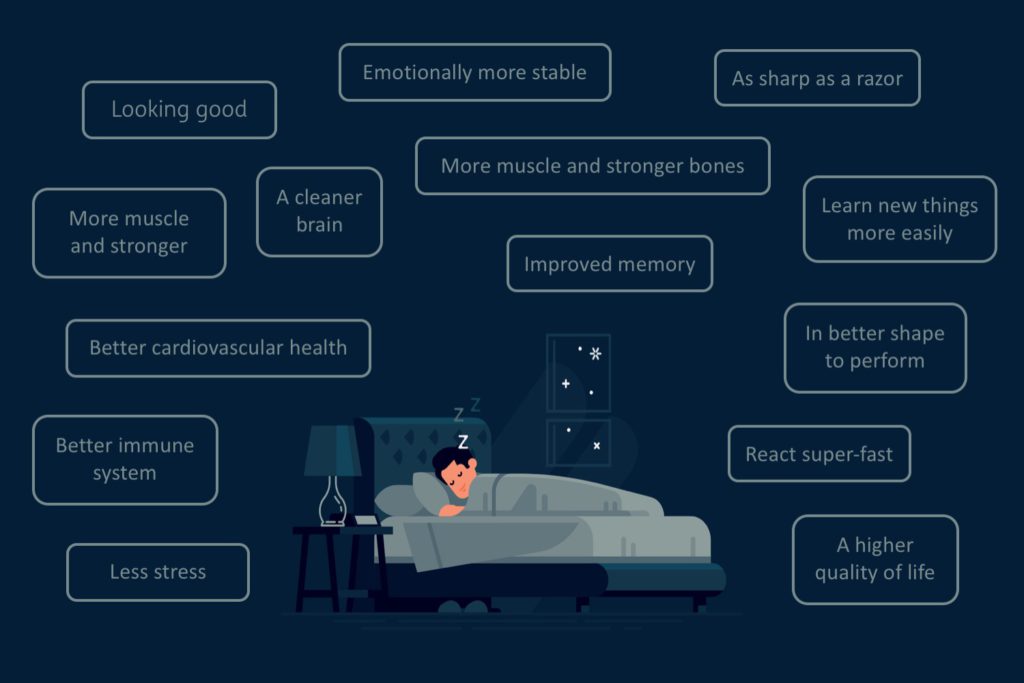
Not getting the sleep you need makes you tired, affects your ability to perform both physically and mentally, and over time, increases your chances of developing a wide range of diseases.
If you are not getting enough high-quality sleep, then getting more of it – even if it’s only a little – is probably one of the most effective ways to increase your energy and Wellbeing.
What Makes You Sleep?
Your sleep wake cycle is dominated by the circadian rhythm and the homeostatic drive to sleep (implying that the longer you are awake, the greater your need to fall asleep).
Circadian rhythm
Your circadian rhythm regulates the timing of periods of sleepiness and wakefulness throughout the day and is governed by your biological clock, your natural circadian pacemaker.
Even though the clock has its own natural rhythm, it is primarily controlled by daylight. Light, especially blue light, inhibits your pineal gland from secreting the sleep hormone melatonin. When darkness falls these cells no longer trigger your biological clock to inhibit the pineal gland. Consequently, melatonin is freed into your system, making you feel increasingly drowsy.
Your circadian rhythm influences many things beyond your brain. Your biological clock, for instance, regulates fluctuations in your body temperature, blood pressure and levels of various hormones. Sleeping at the wrong times can seriously reduce the efficiency of your metabolic engines, and over time lead to a host of health issues, this is why the timing of your sleep according to your circadian rhythm is so important.
Homeostatic drive for sleep
From the moment you wake up in the morning, you begin to build up ‘sleep pressure’, making you more tired the longer you stay awake. How this works exactly is still unclear, but there is a growing consensus that the accumulation of sleep-induced substances in your brain, mainly adenosine (which is a byproduct of our cell’s energy expenditure), is the main cause of your sleep-drive. Eventually the piling up of these substances will tell your brain you are very tired and it’s time to go to sleep.
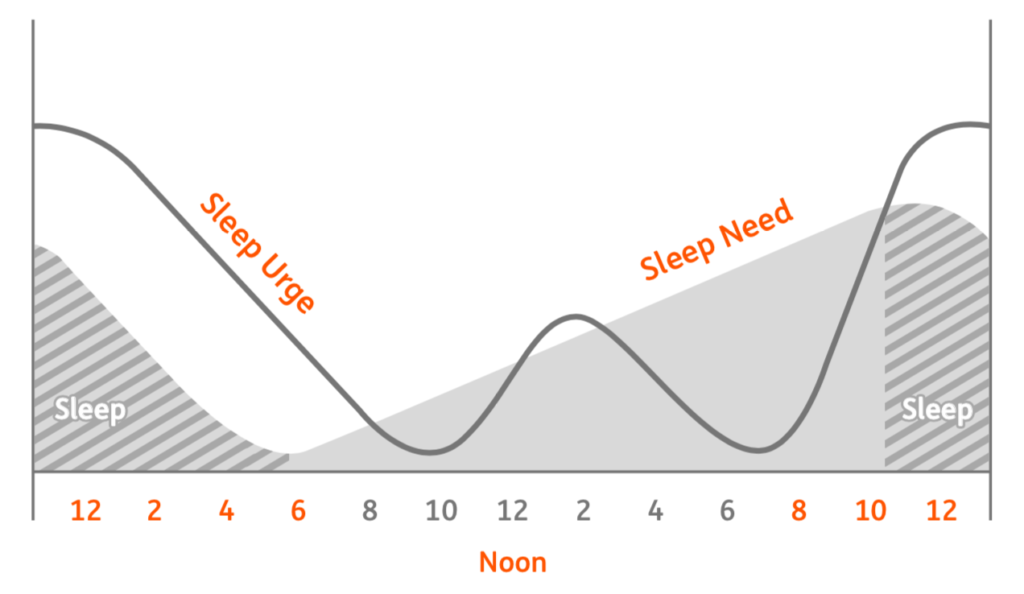
As you go through the day, the two systems oppose each other. As your sleep drive grows, the circadian system keeps you awake, even in the evening – despite the fact that you have a high drive to fall asleep. When it gets dark though, melatonin is released into your body, making it easier to fall asleep.
Sleeping Short
Sleeping short, even for just one night, will have noticeable effects on your energy levels the next day. You will simply not be at your best, making it harder to focus, pay attention, be patient, control your impulses etc. However, one short night does not have to be seriously harmful, especially if you had a whole series of good nights before the short one.
A factor that can help you to have a good day after a short night, is your mindset. When you tap into your willpower, you are able to push yourself a little harder, and effectively exercise control, which may achieve better results. Keep in mind though that the use of your willpower comes at a cost (spending more energy) and will thus increase your need for recovery.
Staying up Late
Being awake for 17 to 19 hours, a normal day for many for most people, has a substantially negative effect on your mental and motor performance, comparable to reaching the legal alcohol limit.
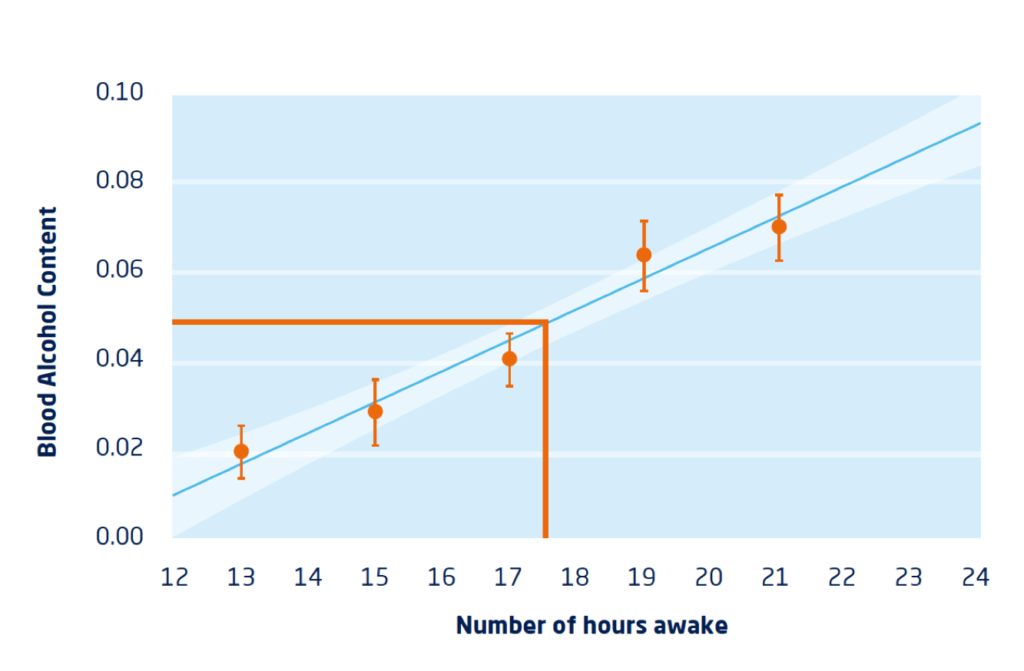
Building up a Sleep Debt
Sleep shortage is a cumulative issue. The less you sleep, the faster your sleep debt builds up, and after just four days of sleeping for an average of five hours per night, your performance decreases almost to the same level as being legally drunk and after two weeks of sleeping only six hours a night your performance deficits are likely to be comparable to someone who has stayed up for two days straight.
When you are chronically sleep deprived, you are less capable at just about everything you do. Chances are that you will become frustrated easily, selfish, less co-operative, less creative and less innovative, and that both your self-control and your long-term memory goes out the window.
A poor judge
When you suffer from sleep deprivation, you are impaired, but often don’t realize it yourself. The shorter you sleep, the less accurately you are able to judge how it affects your performance. In other words; when you are exhausted, you don’t realize it – because you are exhausted.
Sleep or die
Over time, not getting enough sleep can harm every major system in your body: from your immune system, your stress response system to every organ in your body, including your brain. You have an increased risk of viral infections, weight gain, diabetes, high blood pressure and heart disease. On top of that, chronic sleep debt may trigger a number of mental illnesses and increase your chances of developing degenerative diseases of the brain such as Alzheimer’s.
Not getting the sleep you need, increases your chances of premature death, from any cause of disease. Reason enough to prioritize your sleep and let it do what it does best: give your body and brain the recovery you need.
How much Sleep Do you Need?
Although individual needs of sleep may vary (about 5% can do with less than six hours of sleep) the vast majority of adults need about seven to nine hours of sleep.
How much sleep you need exactly depends on many things and will vary throughout your life. Demanding physical workouts, a stressful period at work, or even a simple flu can substantially increase your need for sleep temporarily. Furthermore, as you grow older your sleep efficiency will lower, and thus you will need more sleeping time to obtain sufficient high-quality sleep.
A way to find out how much sleep you need – at a minimum – to have all your systems work optimally, is to allow yourself unrestricted sleep for a few weeks in a stress-free period, for instance while on vacation.
Are you Getting Enough Sleep?
Sometimes it’s pretty clear that you need more sleep. If you constantly need coffee ‘in order to be able to function’, or have trouble remembering things or staying awake, lack energy etc., this is probably the case.
Social Demands
Sometimes due to your schedule, you simply have to deal with getting up very early, or getting home in the middle of the night. In general, it is best to minimize doing things that are not in tune with your biological clock. If you do so regularly, you will over time increase your chances of developing a wide range of health problems.
Me-time
Sometimes you just don’t want to go to bed too early. Still, it is important to count back from the time you have to get up in the morning, to get enough hours in bed. You simply have to accept the fact that you cannot start a movie at 10:30pm when you need to get a good night’s rest. Think of what is more important: your performance the next day, or your me-time? It can sometimes be a difficult choice, since your willpower is not at its highest level by the end of the day. Try to nudge yourself to go to bed on time, or create some extra me-time by getting up a little earlier in the morning, or making sure that you get some during the day. This way you can minimize the urge of ‘needing to do something for myself’ late at night.
Catching up
Your body has the ability to recover fast and effectively, but can only do so to some extent. One night of bad sleep is something you can recover from in one or two nights, but recovering from several nights of bad sleep or longer periods, takes a lot more. To fully repay a sleep debt of 10 hours that you might have accumulated, you have to sleep an extra 3 hours on the weekend and an extra hour or 2 the next week (at a minimum).
Repaying a Long-Term Sleep Debt
When you haven’t been getting the sleep you need for a longer period of time, your body and brain suffer in a variety of ways, which without a doubt will have a negative impact on your performance, as well as your wellbeing. The good news is that you will not have to make up for each and every one of those hours to repay your sleep debt. It will however take much longer to fully recover; think weeks, not days.
Managing Insomnia
Although lying awake frequently, tossing and turning, can be frustrating and chronic insomnia can wear you out, bear in mind that, especially if there are no underlying medical conditions, insomnia is well treatable. While taking sleeping pills or medications may help you in the short term, lifestyle and bedtime behavior changes and especially Cognitive Behavioral Therapy (CBT) or Acceptance and Commitment Therapy (ACT) have proven to be most effective in the long run.
Apart from therapy, tools such as meditation and yoga have also proven to be very useful. The trick with most of them is to practice, practice and practice. If you want to know how these tools can work for you, then see Get the Most Out of Your Downtime. If you’ve tried everything and still can’t manage to get enough sleep, then don’t hesitate to ask for help from a specialist.
Other Sleep Disorders
About one in four people will, at some point in their life, develop a sleep disorder. Breathing disorders, pain syndromes, stress disorders, kidney disease, restless legs and circadian rhythm problems are just a few examples of the more than 80 different sleep disorders known to seriously mess with sleep. In addition, a number of prescription and over-the-counter medications (used to treat these and other health related problems) can also hurt your sleep, both the quality and quantity.
The chances of developing a sleeping disorder increase as you get older. Just ageing alone does not lead to sleep problems by definition; the related conditions do. This is why it is of great importance to tackle them early on.

